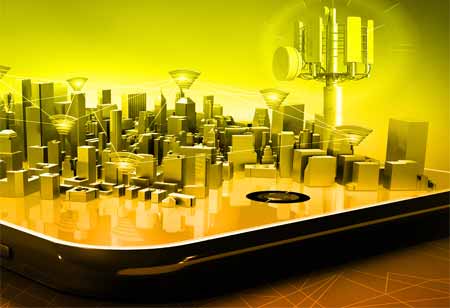Thank you for Subscribing to Construction Business Review Weekly Brief

When Everything is Mobile
Have you ever lost or misplaced your smartphone? The feeling of utter uselessness is crushing as you scramble to first figure out where the device could be and then the sinking feeling of my life is on that thing kicks in and you realize, you can’t remember anyone’s phone number and if you could, you have no way of calling them to ask for help. We have become so dependent upon our electronic devices that simple activities are nearly impossible without them. Read the news, nope. Check what time the meeting starts, nope. Drive to meet a client for lunch in an unfamiliar city, nope. These basic tasks are simply taken for granted.
Think about some of the more complex things we do on a daily basis and how many of them are now done from your mobile phone. No matter where you turn everything runs on your mobile device. We do our banking, order food, get approved for a mortgage, track our kids, process invoices, order groceries, communicate on every form of social media, and there is a seemingly endless array of apps to download to keep you pinned to your smartphone.
While all of this enablement is impressive, albeit somewhat overwhelming, the number of studies about technology addiction is alarming. The impact on our bodies, such as sleep disruption, attention deficit, impaired emotional intelligence or social isolations, and the negative mark technology addiction can leave on us raises concerns about long-term effects. Wasn’t the advancement of technology supposed to make our lives easier? I guess The Jetsons cartoon from the 1960s foreshadowed how humans would have all kinds of conveniences that would make our lives better, but failed to predict how oversaturation of technology could impact our health and social lives, or the creation of a new phenomenon, FOMO (fear of missing out).
The pace of technology change is showing no signs of slowing down. Worldwide, smartphone subscriptions surpassed six billion in 2021 and forecasts project that number increasing to 7.6 billion by 2027. To put this into perspective, the world population is estimated at 7.8 billion. The Apple App Store has 1.96 million apps available for download, whereas Google Play Store lists 2.87 million. Data points aside, it isn’t difficult to see that mobile technology is here to stay.
Everything mobile is not all bad. Technology continues to improve our daily lives, globally speaking, as advancements in medicine, agriculture, logistics and communications have enabled doctors to virtually diagnose and treat people in the remote parts of the world, and tracking of food supplies from farm to family is helping to provide proper nutrition to those in need. Technology has helped to make the world smaller, more personal and available to anyone with a smartphone and a cellular or wireless connection.
Mobile devices have changed dramatically over the years. The phone app is one of the least used apps on my phone.
Without the advancements in cellular, wireless and landline speeds, the genius of mobile phones would be considerably less sparkly. Layer in the abundance of business apps to keep capitalism alive and well, or the infinite number of personal apps to appease our endless appetite for binge watching or video games play and the devices would be nothing more than a personal assistant to organize our day. Now include the ability to process data and information on these devices with the compute power, unimaginable by NASA during their pursuit of the moon landing, and you have the full trifecta for the end-user.
“The pace of technology change is showing no signs of slowing down. Worldwide, smartphone subscriptions surpassed six billion in 2021 and forecasts project that number increasing to 7.6 billion by 2027.”
Feeling pretty good about your smartphone and the many benefits it is capable of providing, well let’s not lose sight of the dark side of everything mobile, the cyber-criminals. They prowl around like hungry lions waiting to devour your precious information. The only thing between you and the bad guys is a password made up of your cat’s name and grandma Betseys DOB, unless of course you are savvy enough to use a password manager and/or multi-factor authentication (MFA or 2FA), requiring a several digit code texted to your phone before being granted access to your funds, ride-share app or credit report.
Cybercrime continues to plague individuals and businesses alike. Phishing, Social Engineering, Malware, Ransomware, Account Takeover, Web Application Attacks, Insider Threats, and the list of cyber threats goes on and on. The trends are staggering and the cryptocurrency-funded threat actors have no intention (or reason for that matter) to stop their relentless attacks. In an everything mobile world, cybercrime prevention falls on you. Yes, many business applications and websites require stronger passwords or MFA to use their solutions, but you must learn to diagnose a phish or socially engineered email before blindly tapping away on the screen; it just might save you from having your identity stolen or your bank account drained. The human firewall is the last line of defense. Technology can only protect you so much and then it is up to you.
Whether you use your smartphone to only make calls or whether you self-classify as technology addicted, your dependency on mobile technology is here to stay. The concept of when everything is mobile is not new. The premise of this article is to get you thinking about the appropriate amount of use for yourself and your loved ones, and how to balance or manage your technology time. If you follow the wisdom of George Jetson (Google his name if you don’t know) and are looking for ways to leverage technology to make your life easier, then the sky is the limit for you, but do not take cyber-protection lightly. It only takes one! One app, one email, one user, one wrong click for bad stuff to happen.








